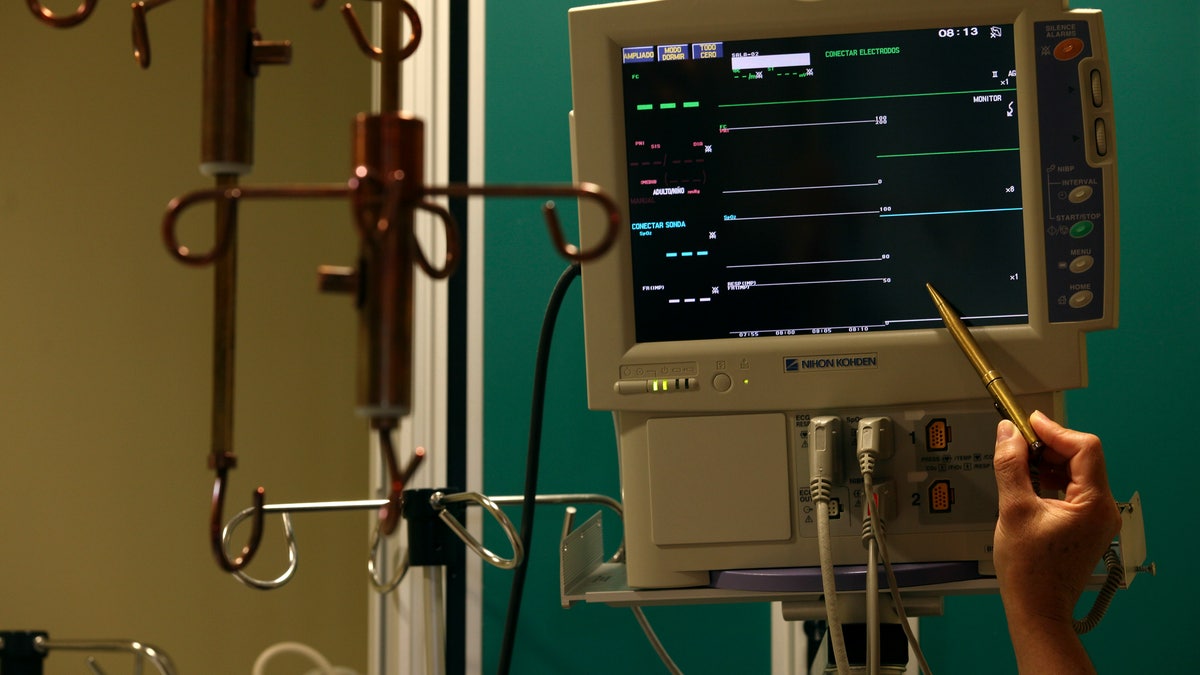
File photo: A nurse points to an Electrocardiograph (EKG) machine with a copper pen next to a copper IV drip stand at the Copper Hospital in Calama city, north of Santiago March 31, 2011. (REUTERS/Ivan Alvarado)
You’ve heard about accessing your phone with your fingerprint, but what if your heart could be the key to unlocking your private medical records?
That’s just what researchers from SUNY Binghamton have proposed. Their concept involves using a skin sensor to measure the heart’s electrical activity— a patient’s electrocardiograph (ECG). Since ECGs are commonly taken anyway and then stored in electronic medical records, Zhanpeng Jin, an assistant professor at the university, said that ECGs can do double duty and also serve as the key to unlocking those records.
“The ECG signal is one of the most important and common physiological parameters collected and analyzed to understand a patient's' health," Jin said, in a statement. "While ECG signals are collected for clinical diagnosis and transmitted through networks to electronic health records, we strategically reused the ECG signals for the data encryption.”
The method will help keep the records secure and private, he added.
WIKILEAKS PROPOSES DATABASE OF VERIFIED TWITTER USERS' INFO, SPARKS UPROAR
Jin is a coauthor, along with other researchers from SUNY Binghamton, on a paper about the new strategy. He has also researched the use of a person’s “brainprint” as a way to access things like buildings and computers, according to the university.








































